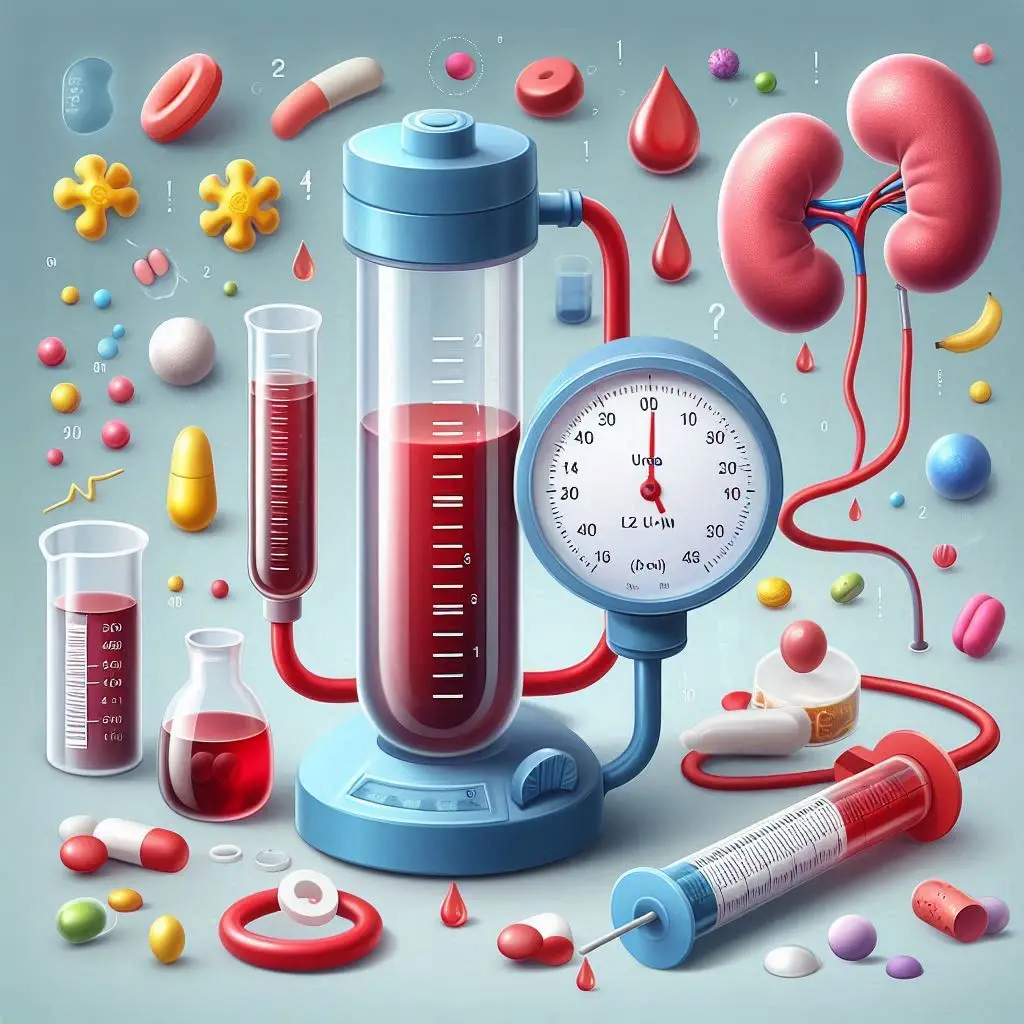
High Urea Nitrogen in Blood, Urine, and Creatinine Levels Symptoms
Introduction
In this article, High Urea Nitrogen in Blood, Urine, and Creatinine Levels Symptoms, we will explore the significance of high urea nitrogen in the blood, the implications of high urea nitrogen in urine, the relationship between high urea nitrogen and creatinine levels, the causes and effects of elevated urea nitrogen levels, and the symptoms associated with these conditions. Understanding these factors is essential for early detection and treatment of potential health issues.
High urea nitrogen in blood, urine, and creatinine levels is an important indicator of kidney function and overall health. When these levels are elevated, it can signal underlying medical conditions that require attention.
High Urea Nitrogen in Blood
High urea nitrogen in blood, often referred to as elevated blood urea nitrogen (BUN), is a key indicator used by healthcare professionals to assess kidney function. Blood urea nitrogen is a waste product formed in the liver as the body breaks down proteins. Normally, the kidneys filter out urea nitrogen from the blood, excreting it in the urine. However, when the kidneys are not functioning properly, BUN levels can rise, indicating a potential problem. High urea nitrogen in blood can be caused by various factors, including dehydration, heart failure, gastrointestinal bleeding, and chronic kidney disease. It's crucial to understand the significance of high BUN levels and the potential underlying conditions they may indicate.
High Urea Nitrogen in Urine
High urea nitrogen in urine is another important measure of kidney function and overall health. When urea nitrogen levels in urine are elevated, it can suggest that the kidneys are working to compensate for some dysfunction or that the body is experiencing an increased protein breakdown. High urea nitrogen in urine can result from a range of conditions, including dehydration, high-protein diets, and liver disease. In some cases, it may also indicate a problem with the kidneys' ability to filter waste products effectively. Monitoring urea nitrogen levels in urine, along with other diagnostic tests, can provide valuable insights into the health of the kidneys and help guide appropriate treatment.
High Urea Nitrogen and Creatinine
High urea nitrogen and creatinine levels are often evaluated together to assess kidney function. Creatinine is another waste product filtered by the kidneys, and its levels in the blood can provide additional information about how well the kidneys are working. When both urea nitrogen and creatinine levels are elevated, it typically indicates that the kidneys are not filtering waste products effectively, a condition known as azotemia. The ratio of urea nitrogen to creatinine can also offer insights into specific types of kidney dysfunction. For instance, a high urea nitrogen-to-creatinine ratio may suggest dehydration or gastrointestinal bleeding, while a lower ratio may indicate other forms of kidney impairment. Understanding the relationship between these two markers is crucial for accurate diagnosis and treatment.
High Urea Nitrogen Levels
High urea nitrogen levels, whether in the blood or urine, are a sign that the body is not properly eliminating waste products. Elevated levels can be caused by a variety of factors, including excessive protein intake, dehydration, or underlying kidney disease. In some cases, high urea nitrogen levels may be temporary and resolve with hydration or dietary changes. However, persistently high levels can indicate more serious health issues, such as chronic kidney disease, acute kidney injury, or heart failure. Monitoring and managing high urea nitrogen levels is essential for maintaining overall health and preventing complications related to kidney dysfunction.
High Urea Nitrogen Symptoms
High urea nitrogen symptoms can vary depending on the underlying cause and the severity of the condition. In some cases, individuals with elevated urea nitrogen levels may experience no symptoms at all, while others may develop a range of signs indicative of kidney dysfunction or other health issues. Common symptoms associated with high urea nitrogen levels include fatigue, nausea, vomiting, loss of appetite, and confusion. In severe cases, individuals may develop more serious symptoms, such as swelling in the extremities, difficulty breathing, and chest pain, which could indicate heart failure or other life-threatening conditions. Recognizing and addressing these symptoms early on is critical for preventing further health complications.
Conclusion
In conclusion, high urea nitrogen in blood, urine, and creatinine levels is a critical marker of kidney function and overall health. Elevated levels of urea nitrogen can indicate a range of underlying conditions, from dehydration and high protein intake to chronic kidney disease and heart failure. Understanding the significance of high urea nitrogen levels, whether in blood or urine, and the relationship between urea nitrogen and creatinine, is essential for accurate diagnosis and effective treatment. By recognizing the symptoms associated with high urea nitrogen levels, individuals can seek timely medical intervention and prevent potential health complications. Regular monitoring and management of these levels are crucial for maintaining kidney health and overall well-being.

